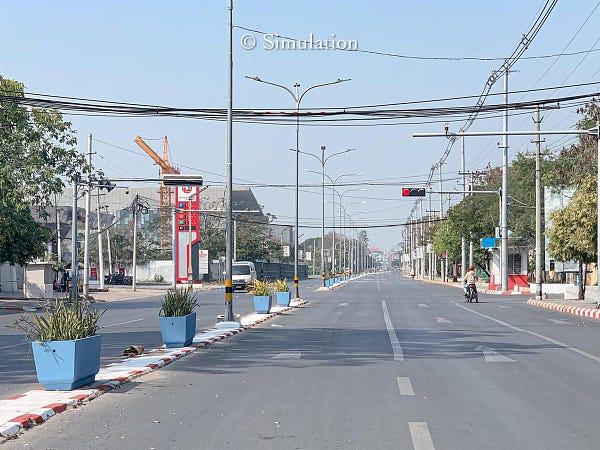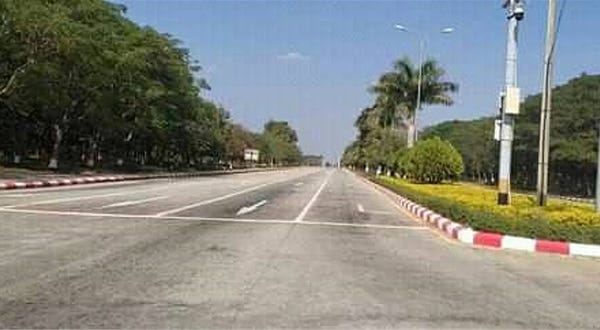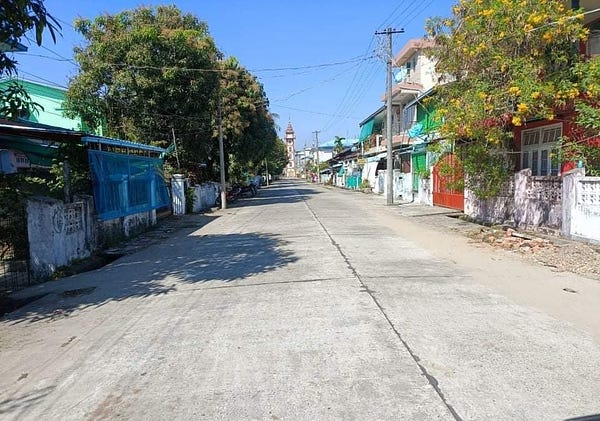🇲🇲 A Year On (Part 1)
Hello friends,
I have broken this week’s one year anniversary of the Myanmar coup newsletter into two parts. Today, I’ve had a look at what’s happening inside the country, from protests to armed insurgencies and legal manoeuvres.
Tomorrow, we’ll pick it back up again with how it looks outside, including commentary from the United Nations, the continued pressure from within Asean and how overseas Burmese are faring in what can only be described as a year from hell.
Both today and tomorrow are free for any and all readers. To sign up for the premium list, take a look here:
But better yet! Subscribe or donate to Frontier Myanmar or Myanmar Now (or any other Myanmar-based publication you prefer [with a few exceptions…]!) and send me a copy of your receipt for a free six-month premium subscription to Dari Mulut ke Mulut.
Without the hard work and sheer perseverance of publications like Frontier Myanmar and Myanmar Now, the world would be far more ignorant of what is happening inside of Myanmar. True heroes in an increasingly difficult environment.
See you tomorrow,
Erin Cook
Before we really get into it, I want to push this one from friend of the letter Victoria Milko for the Associated Press. It’s far too easy, I think when talking about Myanmar to get swept up in big concepts like democracy and human rights. Victoria’s piece places the tragedy where it is, on the family and community level where so many have lost loved ones. Phenomenal read, make sure to click through.
Going silent
The banging of pots and pans in the first nights post the coup has given way to silent protests, or silent strikes. The protests are a simple thing — stay at home, don’t participate in life as though everything is normal — and are one of the safer options following months of deaths at the hands of the Tatmadaw. Silent protests also produce these fantastic, eerie images of usually busy streets in Myanmar’s cities empty of people.




Tensions leading up to Tuesday’s one year anniversary made it clear that a silent protest would be the safest, with authorities warning of arrests and crackdowns on the occasion. Still, there has been at least one shocking incident of attempted self-immolation, Reuters reports, in the town of Kyaukdataung. "He set fire himself at the Main Street in front of the electricity office. He is in a serious condition. The situation is quite unstable here today," a resident told Reuters by phone.
The newswire also reports a number of pro-junta celebrations in a couple of cities, including Naypyitaw.
Frontier Myanmar has a fascinating report on the pro-junta movements ahead of the anniversary, particularly surveillance of online and off activities of businesses and individuals believed to be part of the pro-democracy movement. The whole report must be read in full, but I found the point about platforms particularly compelling given the last few years. After years of outcry, many of the more prominent pro-military users have been purged from Facebook, the country’s most popular platform, forcing them onto lesser-used and harder to monitor platforms like Russia’s VK, according to Frontier Myanmar. While this is all organised online, it is having real-world effects with businesses targeted for planning to close Feb 1 arrested.
How the fight continues
Still, while the junta marks a violent year, the hold the military has on the country remains questionable. Ethnic groups, which have in some parts of the country battled the military for decades, are continuing their fight and in some instances teaming up with the new People’s Defence Force (PDF) militias to target government-owned infrastructure, those serving in the military or police force and individuals believed to be informants.
The widespread nature of this means there’s been a nearly year-long debate on if and when the Myanmar conflict could be considered a civil war. That question is nearing the affirmative in recent weeks, with some Burmese and foreign pundits already calling it but I do think it can be difficult for us non-experts watching from abroad to understand what this means in practice.
Even before the junta, understanding Myanmar’s kaleidoscope of armed ethnic groups is a tough learning curve. This piece from Angshuman Choudhury for 9 Dash Line has been very illuminating in laying out the last year’s battles between armed ethnic groups (particularly those which have joined forces with PDFs) and the military. This is another piece that must be read in full, but the key takeaway here for me is that, in some areas of the country, “the resistance forces have 80 to 90 per cent control over the regions where they are now present.” Choudhury notes that it will not be shocking to find in areas of high concentration of resistance forces to establish ‘politico-administrative structures’, a concept which many armed groups have previous experience in and would be valuable in deepening relations between those groups and PDFs.
Writing for the Conversation, Nicholas Farrelly and Adam Simpson note another area in which fortune favours the new armed groups/PDF alliances: social media. Previously, the two write, the military has been able to operate violently with impunity, but now the Internet is rabid for evidence of military overreach and, in some instances, they write, war crimes.
This has had a contributing effect on the military’s efforts to find and train new recruits. “The military needs to keep up its fighting strength, although it has reportedly struggled to recruit fresh cadets for its top training school,” they write.
Radio Free Asia has done a lot of reporting from clashes which give an idea of how it looks on the state-level, most prominently Karen State, which has the longest-running insurgency in the country, and Rakhine State, where factional wars and the Rohingya crisis have featured in regional and international media for years.
Locked up
The junta, which has arrested over 11,000 people in the last year, is planning to restart capital punishment, decades after it was put on hold. Liv Stoltze Gaborit, an academic who has researched the use of capital punishment in Myanmar, writes for the Conversation that execution ‘clearly violates’ Buddhist traditions in the country.
This whole report on her research and recent conversations with previous political prisoners is fascinating and depressing, please read it all. One subject notes that the current junta’s inability to understand many of the factors laid out by other interviewees in this piece underscores its total lack of understanding of the country and how to govern it. Stunning piece.
Still, it must still be terrifying for those sentenced to death. National League of Democracy lawmaker Phyo Zeyar Thaw and activist Kyaw Min Yu were both sentenced to death last month, for their supposed terrorism crimes. The sentences are the first of their kind since the coup.
Elsewhere, ousted de facto leader Aung San Suu Kyi will face another trial later this month over election fraud.
Further reading:
”Their Buddhism is a fake show, they don’t deserve to be called Buddhists. We don’t kill other people. What they are doing right now is all opposite of Buddhism,” said Agga Wantha, a 30-year-old monk from Mandalay who has been leading protests against the coup.
“They are just saying that they are Buddhist but they are doing this just to get a hold of the country.”
Nearly a year after his son was last seen being hauled away by Myanmar junta troops, 66-year-old Win Hlaing says he just wants to know whether he is alive.
One night last April, a neighbour phoned to tell him his son, Wai Soe Hlaing, a young father who ran a phone shop in Yangon, had been detained in connection with protests against the Feb. 1 military coup.
They traced the 31-year-old to a local police station, according to Win Hlaing and The Assistance Association for Political Prisoners (AAPP), a non-profit that has been documenting arrests and killings.
Then the trail went cold. He had vanished.
The CDM: Anxiety, hardship and sacrifice but no regrets (Frontier Myanmar)
Thit Thit Lwin gave up her life as she knew it when she decided to join the CDM. Her sacrifice is all the more significant given she was just five years away from retirement and a government pension for life. But she is resolute about not working under the military.
“People were amazed by my decision, because I have no one to rely on – I am single and have no husband or children to support me,” she said. “People might think I regret my decision, but I absolutely do not. Even if I was starving, I would refuse to work under the junta that killed our students.”

